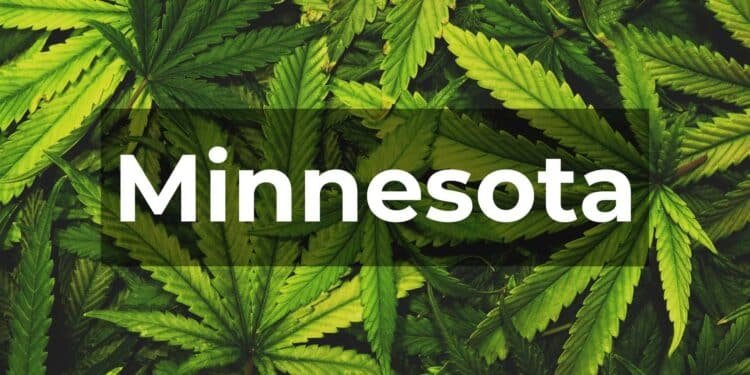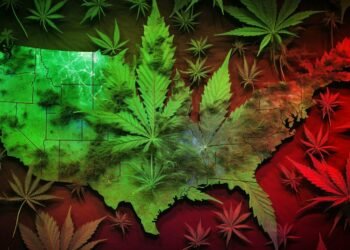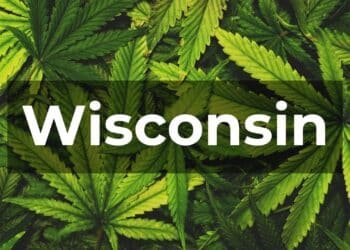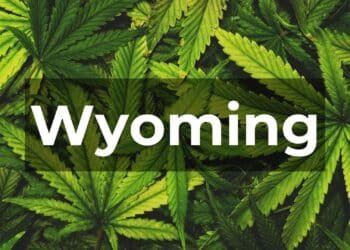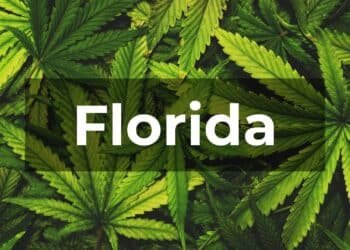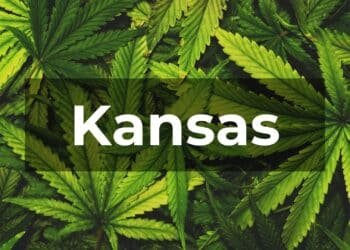Welcome to our article on the legal status of marijuana in Minnesota. If you’re wondering whether marijuana is legal in Minnesota, we’ve got you covered. In this article, we’ll provide you with a comprehensive overview of the current laws and regulations surrounding marijuana use, possession, and sales in the state. We’ll also discuss the potential economic benefits and risks associated with legalization, as well as the impact of marijuana use on youth, employment, and driving in Minnesota.
So, if you’re curious about Minnesota’s cannabis laws and want to know what you can and can’t do when it comes to marijuana, read on. Our goal is to provide you with all the information you need to make informed decisions and stay on the right side of the law.
Understanding Minnesota’s Cannabis Laws
Minnesota is one of the many states that have legalized marijuana for medical purposes. However, the possession and use of marijuana for recreational purposes is still illegal in the state.
Under Minnesota law, possession of up to 42.5 grams of marijuana for personal use is considered a petty misdemeanor, punishable by a fine of up to $200. Possession of more than 42.5 grams is considered a felony, punishable by up to five years in prison and a fine of up to $10,000.
Minnesota’s medical marijuana program is regulated by the Minnesota Department of Health. To qualify for medical marijuana, patients must have a qualifying medical condition such as cancer, glaucoma, HIV/AIDS, or chronic pain. Patients must also obtain a certification from a healthcare practitioner and apply for a medical cannabis registry card from the Minnesota Department of Health.
Medical marijuana can only be obtained from one of Minnesota’s eight medical cannabis dispensaries, which are located in Minneapolis, St. Paul, Rochester, Moorhead, St. Cloud, Bloomington, Hibbing, and Eveleth. Approved patients may purchase up to a 90-day supply of medical marijuana products at a time.
Minnesota Marijuana Possession Laws
As mentioned earlier, possession of small amounts of marijuana for personal use is considered a petty misdemeanor in Minnesota. However, possession of larger amounts or distribution of marijuana is considered a felony and can result in significant fines and jail time.
Minnesota also has strict laws regarding driving under the influence of marijuana. It is illegal to operate a motor vehicle while under the influence of marijuana, and individuals who are caught driving while high can face significant fines and potentially even jail time.
It is important to note that while the use of medical marijuana is legal in Minnesota, smoking marijuana is not permitted. Medical marijuana products must be consumed in other forms, such as oils, capsules, or vaporized liquids.
Medical Marijuana in Minnesota
Medical marijuana has been legal in Minnesota since 2014, but there are specific regulations in place for those who wish to use it for medical purposes. The state allows patients with specific medical conditions to use marijuana as treatment.
Some qualifying conditions include cancer, glaucoma, HIV/AIDS, and seizure disorders. In addition to the qualifying conditions, patients must also meet other requirements, including being a resident of Minnesota and having a certification from a healthcare practitioner.
To acquire medical marijuana in Minnesota, patients must apply for and receive a Medical Cannabis Registry Card. This card is issued by the Minnesota Department of Health after the patient has been certified by a healthcare practitioner.
Once a card has been obtained, a patient can purchase medical marijuana from a certified dispensary in the state. These dispensaries sell a variety of marijuana products, including oils, capsules, and extracts, which are specific to the conditions being treated.
It’s important to note that while medical marijuana is legal in Minnesota, there are still regulations in place that govern its use and purchase. Patients must follow these regulations to avoid legal consequences.
Recreational Marijuana in Minnesota
Currently, recreational marijuana is not legal in Minnesota. Possession of small amounts (< 42.5 grams) of marijuana for personal use is considered a petty misdemeanor offense punishable by a fine of up to $200.
Efforts to legalize recreational marijuana have been introduced in the Minnesota legislature but have yet to gain significant traction. However, some cities in the state have passed local ordinances that reduce the penalties for marijuana possession to a noncriminal offense, similar to a traffic violation.
Proponents of legalization argue that it could generate significant tax revenue for the state, create jobs, and reduce the burden on law enforcement. Opponents cite concerns about the potential for increased drug use and addiction, as well as difficulties in regulating and enforcing marijuana-related offenses.
What are the proposed laws for recreational marijuana in Minnesota?
Several proposals have been introduced in the Minnesota legislature to legalize recreational marijuana. The bills vary in their specifics, but generally, they would allow individuals over the age of 21 to possess and use marijuana for recreational purposes.
The proposed legislation would also establish a system for regulating and taxing marijuana sales and cultivation. Additionally, the bills would expunge past marijuana-related offenses, reducing the harm caused by the War on Drugs for marginalized communities.
As of yet, no recreational marijuana bill has passed in Minnesota, but advocates remain hopeful that it will happen soon.
Marijuana Sales and Retailers in Minnesota
Currently, there are only two types of marijuana products available for sale in Minnesota: medical marijuana and hemp CBD products. Only licensed medical dispensaries are allowed to sell medical marijuana to registered patients.
| Type of Dispensary | Location |
|---|---|
| Leafline Labs | St. Paul, Eagan, St. Cloud, Hibbing |
| Minnesota Medical Solutions | Minneapolis, Bloomington, Moorhead, Rochester |
Medical marijuana products may come in the form of oils, capsules, vaporizers, and topical creams. The Minnesota Department of Health regulates the medical marijuana program and ensures all products are safe, consistent, and labeled accurately.
Hemp CBD products, on the other hand, are available to purchase at various retailers throughout the state. These products are not regulated by the state and may contain varying levels of THC. Consumers should be cautious when purchasing hemp CBD products and ensure they are buying from reputable sources.
In terms of pricing, medical marijuana products are generally more expensive than hemp CBD products due to the strict regulations and quality control requirements. Medical marijuana patients are also required to pay an annual registration fee to participate in the program.
Regulations and Safety
All licensed dispensaries and retailers in Minnesota are required to follow strict regulations to ensure the safety and quality of their products. Dispensaries must keep detailed records of all purchases and ensure that all medical patients have valid registration cards. Retailers of hemp CBD products must provide accurate labeling and ensure that their products contain less than 0.3% THC.
Consumers should be aware that purchasing marijuana products from unlicensed sources is illegal and potentially dangerous. These products may not be tested for safety or quality and may contain harmful contaminants.
Impact of Marijuana Legalization on the Economy
Legalizing marijuana in Minnesota has the potential to bring substantial economic benefits to the state. One of the main advantages is the increase in tax revenue that can be generated from the sale of marijuana products. Several states that have already legalized marijuana have seen significant increases in tax revenue, with some estimating up to $1 billion in annual revenue.
Another potential benefit is the creation of new job opportunities in the marijuana industry. This includes jobs in cultivation, processing, distribution, and retail sales. In addition, legalizing marijuana can also attract tourism, particularly in areas with a thriving marijuana market.
However, some argue that the potential drawbacks of legalization outweigh the economic benefits. Critics of legalization express concerns over increased drug use, particularly among youth, and the potential negative impact on public health and safety. There is also some evidence to suggest that legalization could lead to increased healthcare costs related to marijuana use.
With other states already exploring and experiencing marijuana legalization, it is important for Minnesota to weigh the potential economic benefits against the potential social and health risks associated with legalization. Ultimately, it will be up to the state legislature to determine whether or not to legalize recreational marijuana in Minnesota.
Marijuana Use and Youth in Minnesota
Marijuana use among minors can have serious long-term effects on their health and well-being. It is important for parents and guardians to be aware of the potential risks and for the state to have laws in place to prevent youth marijuana use.
Minnesota has strict laws in place to prevent youth marijuana use. Possession, distribution, and sale of marijuana to minors are all illegal and carry severe penalties. Minors caught possessing marijuana face a wide range of consequences, including suspension of driver’s license, community service, and drug education classes. Repeat offenders may face more serious consequences, including detention and juvenile detention center placement.
It is important for parents to talk to their children about drug use and prevention. Research shows that parents who discuss drug use with their children are more likely to prevent substance abuse. Resources are available to parents to help them have these conversations, including information on how to start the conversation and how to talk about the risks of drug use.
If you suspect that your child or someone you know is using drugs, there are resources available for assistance. The Minnesota Prevention Resource Center offers information and support for parents and teens on drug use prevention and treatment. The center provides resources for finding drug treatment programs and offers tools for parents to help their children stay drug-free.
Marijuana and Driving in Minnesota
Driving under the influence of marijuana in Minnesota is illegal, and law enforcement is cracking down on impaired drivers. If you’re caught driving while high, you can be charged with a DWI, just like driving under the influence of alcohol.
Minnesota has a “per se” law that makes it illegal to drive with any detectable level of THC in your system. This means that if you’re pulled over and a blood test shows any amount of THC in your system, you can be charged with a DWI, regardless of whether you were actually impaired while driving.
Penalties for a DWI conviction in Minnesota can include license suspension, fines, and even jail time, depending on the number of prior convictions and the circumstances of the offense. Additionally, a DWI conviction can have a significant impact on your employment, housing, and other aspects of your life.
If you choose to use marijuana, it’s important to never drive while impaired. There are several resources available to help prevent impaired driving, including ride-sharing services, public transportation, and designated drivers.
Growing Marijuana in Minnesota
While medical marijuana is legal in Minnesota, the state has strict laws in place regarding the growing of marijuana for personal use.
In Minnesota, individuals who are registered medical marijuana patients are allowed to grow up to four plants at home, but only if they live more than 100 miles away from the nearest dispensary.
For non-medical use, growing marijuana is still illegal in Minnesota. Possession of even small amounts of marijuana plants can result in criminal charges, and growing larger amounts can lead to felony charges.
If you are interested in growing marijuana for personal use or as a medical marijuana patient, it is important to familiarize yourself with the legal guidelines and restrictions in place in Minnesota to avoid potential legal consequences.
Marijuana and Employment in Minnesota
Marijuana use can impact employment in Minnesota, as many employers require drug testing as part of the hiring process. If you fail a drug test, it can result in the loss of a job opportunity or even termination if you are currently employed.
Employers in Minnesota are allowed to drug test employees and applicants for employment, but they must follow specific guidelines. The Minnesota Drug and Alcohol Testing in the Workplace Act sets forth the requirements for drug testing in the state.
Employers must have a written drug and alcohol testing policy that includes information on when and how employees will be tested, what substances will be tested for, and the consequences of a positive test result. They must also provide training to supervisors and employees on the policy and procedures.
If you test positive for marijuana and your employer has a zero-tolerance policy, you may face consequences such as losing your job or being required to complete a drug treatment program. However, some employers may have more lenient policies that allow for medicinal use of marijuana or do not test for it at all.
If you are seeking employment and are concerned about the impact of marijuana use on drug testing, there are resources available to help. The Minnesota Department of Employment and Economic Development offers information on drug testing in the workplace and job search assistance for individuals with disabilities, including those who use medical marijuana.
Marijuana-Related Crimes and Legal Rights in Minnesota
While marijuana laws have been relaxed in recent years, there are still consequences for breaking the law. Possession, distribution, and trafficking of marijuana are considered criminal offenses in Minnesota, and can result in fines, imprisonment, and other legal penalties. It’s important to understand your legal rights if you are charged with a marijuana-related crime.
If you are charged with a marijuana-related crime, you have the right to a fair trial and legal representation. It’s important to seek the advice of an experienced criminal defense attorney as soon as possible. Your attorney can work to protect your rights and help you navigate the legal system.
It’s also important to understand that you have protection against illegal search and seizure. Police must have a warrant or probable cause to search your property or seize your possessions, including marijuana. If you believe that your legal rights have been violated during a search or seizure, speak to your attorney immediately.
“If you are charged with a marijuana-related crime, you have the right to a fair trial and legal representation.”
If you are convicted of a marijuana-related offense, you may face fines, imprisonment, and other legal penalties. In addition to criminal penalties, a conviction can also have long-term consequences, such as difficulty finding employment or housing. It’s important to understand the potential consequences of a conviction and work with your attorney to mitigate these risks.
Overall, it’s important to understand your legal rights when it comes to marijuana-related crimes in Minnesota. Seek the advice of an experienced criminal defense attorney and work to protect your rights throughout the legal process.
FAQ – Is Marijuana Legal in Minnesota?
As of August 2021, marijuana is legal for medical purposes in Minnesota. However, recreational use of marijuana is still illegal. Possession of marijuana for recreational use is considered a misdemeanor, with penalties of up to 90 days in jail and a $1,000 fine.
If you have a qualifying medical condition, you may be eligible to obtain a medical marijuana card in Minnesota. Qualifying conditions include cancer, glaucoma, HIV/AIDS, Tourette’s syndrome, ALS, seizures, severe and persistent muscle spasms, Crohn’s disease, and terminal illness with a life expectancy of under one year.
It is important to note that possession of marijuana for any purpose remains illegal under federal law. However, the federal government has largely taken a hands-off approach to states that choose to legalize marijuana, leaving it up to individual states to regulate the drug.
How Do I Obtain a Medical Marijuana Card in Minnesota?
To obtain a medical marijuana card in Minnesota, you must first be diagnosed with a qualifying medical condition by a licensed physician. You must then apply to the Minnesota Department of Health for a Medical Cannabis Registry card. The application must include a certification from your physician, a completed application form, and a $200 fee.
Once you are approved for a Medical Cannabis Registry card, you may purchase medical marijuana from one of the state’s eight dispensaries. You may only purchase a 30-day supply of marijuana at a time, and you may not possess more than a 90-day supply at any given time.
What Are the Penalties for Possession or Distribution of Marijuana in Minnesota?
Possession of marijuana for recreational use is considered a misdemeanor offense in Minnesota. If convicted, you may face penalties of up to 90 days in jail and a $1,000 fine.
Distribution of any amount of marijuana is considered a felony in Minnesota. Penalties for distribution vary depending on the amount of marijuana involved, but can include up to 30 years in prison and fines of up to $1,000,000.
Can I Grow Marijuana for Personal Use in Minnesota?
Minnesota allows residents to grow up to eight cannabis plants for personal use. However, the plants must be grown in a secure location that is not visible to the public. Indoor growing is recommended to ensure compliance with the law.
It is important to note that growing more than eight plants or selling any amount of marijuana is illegal in Minnesota and can result in severe penalties, including fines and imprisonment.
Thank you for reading this article on the legal status of marijuana in Minnesota. For more information on this topic, please refer to the resources provided below.



